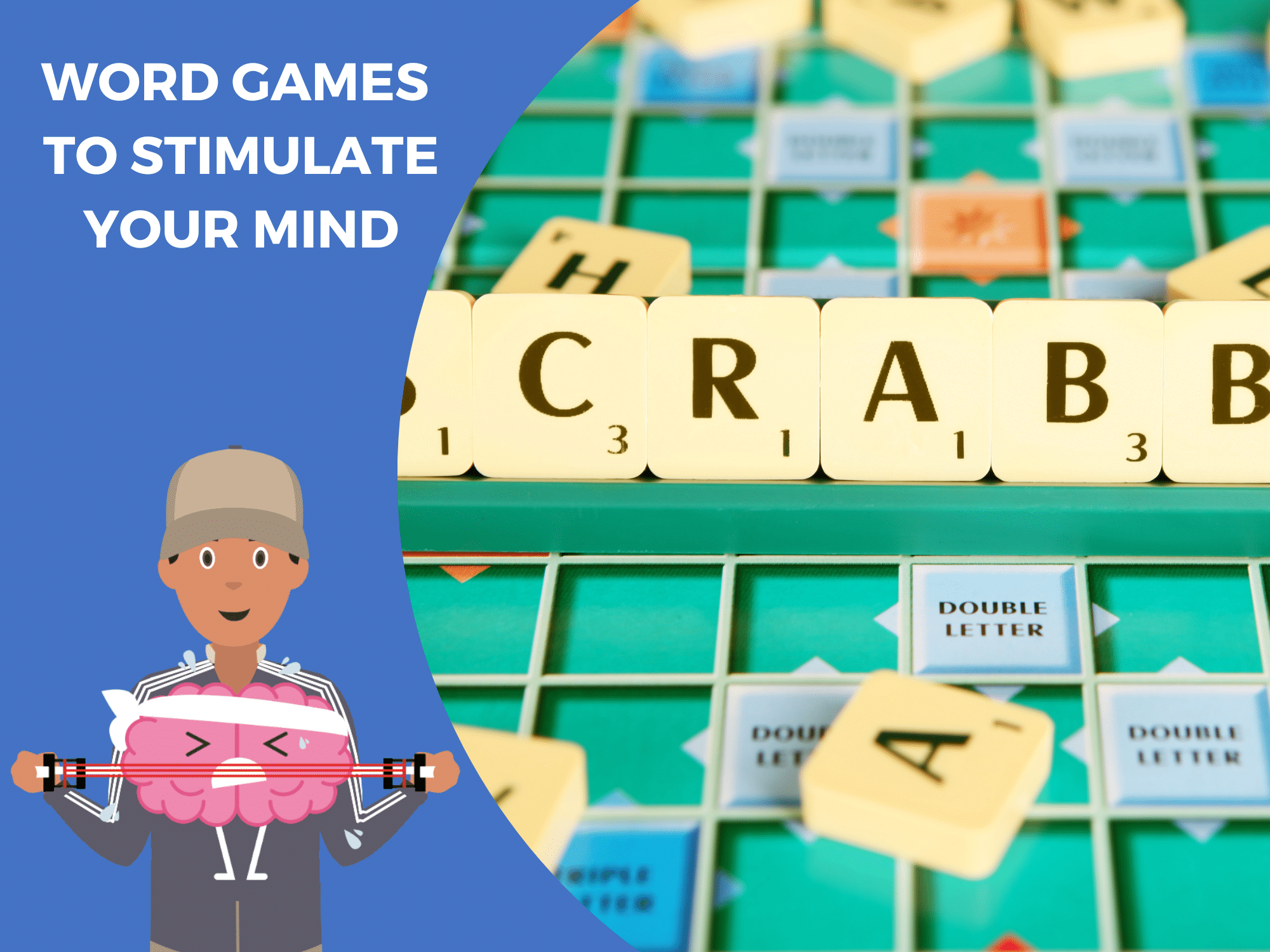Aging is a natural stage of life, which can lead to changes in a person’s cognitive abilities. However, it’s important to emphasize that the brain remains malleable throughout life, and that it is possible to stimulate and improve cognitive functions, including memory, even in the elderly.
Memory games are fun and effective tools for maintaining and strengthening seniors’ mental capacities. In this article, we’ll explore the benefits of memory games for seniors, the different types of games available, and provide practical tips for integrating these playful exercises into seniors’ daily lives.
The benefits of memory games for seniors
Memory games offer many advantages for seniors, both cognitively and emotionally. Here are some of the main benefits:
1. Stimulating memory
Memory games are meticulously crafted to provide seniors with enjoyable yet effective exercises to enhance their cognitive abilities. These activities not only target memory but also work to improve concentration and information retention skills, which are invaluable for navigating daily life with confidence. Thanks to consistent engagement with memory games, seniors can experience notable enhancements in their capacity to recall recent events, names, telephone numbers, and other… These improvements can also contribute to a greater sense of independence and self-assurance among seniors as they tackle various tasks and interactions. The regular practice of memory games serves as a proactive approach to maintaining cognitive health and overall well-being in older adults.
2. Enhancing cognitive skills
To enhance memory, memory games serve as a comprehensive workout for various cognitive functions essential for seniors’ overall mental acuity. These activities not only sharpen memory but also elevate attention, concentration, visual perception, problem-solving, and mental flexibility. Such multifaceted stimulation fosters a well-rounded cognitive health regimen, promoting a sharper, more alert mind in seniors. As seniors engage in these activities; they cultivate vital skills necessary for navigating daily challenges and enjoying a fulfilling quality of life. The incorporation of memory games into routine activities can significantly enhance seniors’ cognitive resilience and overall well-being.
3. Promoting social commitment
Memory games can be played individually or in groups, providing opportunities for social interaction. Playing memory games with other people, whether family members, friends or fellow residents, promotes social ties and engagement with others. This can be particularly beneficial for seniors who may feel isolated or lonely.
4. Reducing stress and improving well-being
Memory games can be a source of entertainment and pleasure for senior citizens. By concentrating on a fun activity, they can escape their daily worries and relax. Memory games can also stimulate the production of neurotransmitters associated with well-being, such as dopamine and endorphins, which can promote a feeling of happiness and satisfaction.
Types of memory games for seniors
There is a wide variety of memory games for seniors. Here are a few popular examples:
1. Card games
Card games, such as pairs and memory games, are timeless classics. They involve turning over cards and finding matching pairs by remembering their location. These games are easy to understand and can be adapted to suit seniors’ abilities and interests.
2. Crosswords and word games
Crosswords, word jumbles, letter games and word games are excellent exercises for stimulating lexical memory, spelling and verbal creativity. They enable seniors to expand their vocabulary, strengthen their reading and writing skills, and keep their minds sharp.
3. Board games
Board games such as Scrabble, Trivial Pursuit, chess and checkers are ideal options for group activities. They provide an opportunity for friendly competition, learning and sharing experiences with other players.
4. Online games and mobile applications
Memory games are also increasingly accessible through digital platforms, catering to the technological preferences of senior citizens. A lot of mobile applications and online games are tailored to stimulate seniors’ memory, providing convenient access to engaging exercises. These digital offerings frequently feature adjustable difficulty levels, rewards, and challenges, catering to individual preferences and ensuring sustained motivation. Using digital formats not only expands the reach of memory games but also adds versatility and excitement to seniors’ cognitive enhancement routines. With the convenience of digital platforms, seniors can seamlessly integrate memory-stimulating activities into their daily lives, further promoting cognitive health and well-being.
Tips for integrating memory games into seniors’ daily lives
To take full advantage of the benefits of memory games, here are a few practical tips for integrating them into seniors’ daily lives:
1. Create a regular schedule
Include memory games in your seniors’ daily routine to make them more accessible and encourage regular practice. Set specific times to play memory games, whether in the morning, afternoon or evening, depending on seniors’ preferences and energy levels.
2. Choose the right games
Select memory games adapted to seniors’ abilities and interests. Make sure the games are challenging enough to keep them engaged, but not so difficult as to discourage them. You can also adapt games to suit any physical, sensory or cognitive limitations seniors may have.
3. Play in a group
Organize group play sessions to encourage social interaction and the sharing of experiences. This can be achieved by inviting family members, friends or other residents of a retirement home to participate. Group games encourage social involvement and strengthen bonds between participants.
4. Vary the types of games
Offer a variety of memory games to avoid monotony and stimulate different cognitive functions. Alternate between card games, word games, board games and online games to offer an enriching and diverse experience.
5. Encourage friendly competition
Friendly competition can add an extra element of fun to memory games. Organize tournaments, challenges or rankings to motivate seniors to improve their performance and excel.
6. Adapt games to personal interests
Consider the personal interests of seniors when choosing memory games. Choose games that reflect their preferences, whether it’s animals, travel, sports, music, history or other subjects they’re passionate about. This will make the games more engaging and keep seniors interested.
7. Show patience and encouragement
Be patient and encouraging when seniors take part in memory games. Some days, they may encounter difficulties or perform less well, and it’s important to support and motivate them. Celebrate their successes and progress, no matter how great or small, to boost their confidence and motivation.
SCARLETT, your memory coach
SCARLETT is an application with over 30 cognitive games to work on all cognitive functions, such as memory, attention, language and logic. With three levels of difficulty, everyone can train at their own pace, without being put off.
Games are cultural, so as you play, you’ll revisit memories of your life, your experiences and your youth. All thanks to fun games such as music, recipes, history, general knowledge…
Using memories is the most effective way of working on memory, as well as the most motivating.

Memory games serve as indispensable resources for seniors seeking to invigorate their minds and preserve cognitive function.
By the incorporation of these engaging activities into their daily regimen, seniors reap the rewards of mental stimulation, social interaction, and enjoyment. Available in diverse formats ranging from traditional card games to interactive mobile applications, memory games cater to a wide spectrum of preferences and requirements. Acknowledging that beyond their entertainment value is crucial; memory games play a pivotal role in enhancing seniors’ quality of life by nurturing their mental and emotional health.
As seniors partake in these activities, they not only sharpen their memory – but also cultivate a sense of accomplishment and fulfillment. This holistic approach to cognitive wellness fosters resilience and vitality in seniors, empowering them to lead more enriching and fulfilling lives.
Other articles that might interest you:
How Parents Can Contribute to Teacher Training
As we delve into the realm of education, it becomes increasingly clear that teacher training is not merely a...
Differentiated Instruction Approaches: Training and Practical Application
Differentiated instruction is a pedagogical approach that recognizes the diverse needs of students in a classroom. It...
Key Skills Teachers Need to Support Students with Special Needs
As we embark on our journey to support children with special needs, it is essential for us to cultivate a deep...








